Time for action
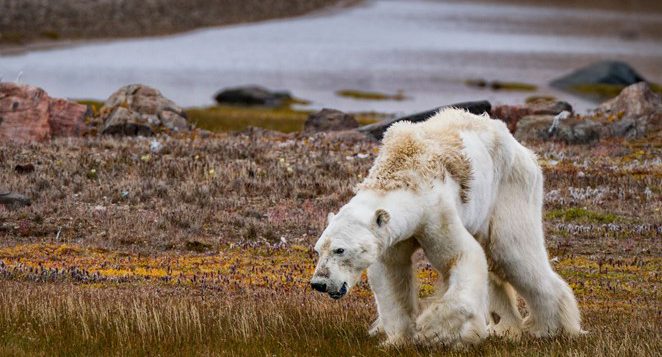
How the Jameel Family’s commitment to tackling climate change aligns with UN Sustainable Development Goal 13 – climate action
![]() Has the world – our world – ever faced a more serious risk to its future than climate change? It is a threat that has become increasingly prominent in global headlines over the past decade. And rightly so. Climate change is not just an inconvenience that may cause some temporary disruption as we go about our daily lives. It is an existential threat that could change our way of life, our eco-system and our planet . . . forever.
Has the world – our world – ever faced a more serious risk to its future than climate change? It is a threat that has become increasingly prominent in global headlines over the past decade. And rightly so. Climate change is not just an inconvenience that may cause some temporary disruption as we go about our daily lives. It is an existential threat that could change our way of life, our eco-system and our planet . . . forever.
Climate change is already increasing the frequency and intensity of extreme weather events such as heat waves, droughts, floods and tropical cyclones. It is aggravating water management problems, reducing agricultural production and food security, and increasing health risks. It is also damaging critical infrastructure and interrupting the provision of basic services such water and sanitation, education, energy and transport. And soon may be a driver of both animal and human migration.
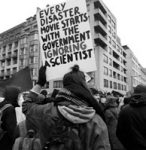 Scientists are observing changes in the Earth’s climate in every region and across the whole climate system, according to the latest Intergovernmental Panel on Climate Change (IPCC) Report[1].
Scientists are observing changes in the Earth’s climate in every region and across the whole climate system, according to the latest Intergovernmental Panel on Climate Change (IPCC) Report[1].
Many of the changes observed in the climate are unprecedented in millennia, if not hundreds of thousands of years, and some of the changes already set in motion—such as continued sea level rise and warming—are irreversible over hundreds to thousands of years.

Addressing these problems and minimizing these risks is at the heart of the United Nations (UN) Sustainable Development Goal (SDG) 13: Take urgent action to combat climate change and its impacts.
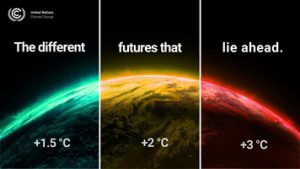 The Paris Agreement[2] set out strict targets to try and prevent irreversible climate change, or at the very least, lessen its worst impacts. The aim is to keep the global temperature rise this century well below 2°C – preferably 1.5°C – above pre-industrial levels.
The Paris Agreement[2] set out strict targets to try and prevent irreversible climate change, or at the very least, lessen its worst impacts. The aim is to keep the global temperature rise this century well below 2°C – preferably 1.5°C – above pre-industrial levels.
To achieve this, the world would need to achieve net zero carbon dioxide (CO2) emissions by around 2050.
The Paris Agreement also aims to strengthen the ability of countries to deal with the impacts of climate change, through appropriate financial flows, a new technology framework and an enhanced capacity building framework.
Patchy progress . . .
Although adopted by 196 parties at COP 21 in Paris in 2015, progress towards these targets over the past six years has been mixed, even before the global COVID-19 pandemic and ensuing health crisis caused social and economic havoc across the globe.
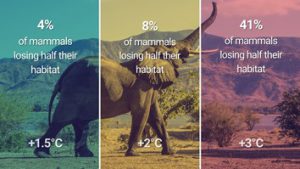 According to scientists, global emissions must be cut to 45% below 2010 levels by 2030 in order to hit the 1.5°C target.[3] Yet atmospheric concentrations of the major greenhouse gases like CO2 continued to increase in 2020, despite a temporary reduction in emissions related to pandemic-driven reduced economic activity, having already reached a new high the year before[4].
According to scientists, global emissions must be cut to 45% below 2010 levels by 2030 in order to hit the 1.5°C target.[3] Yet atmospheric concentrations of the major greenhouse gases like CO2 continued to increase in 2020, despite a temporary reduction in emissions related to pandemic-driven reduced economic activity, having already reached a new high the year before[4].
2019 was also the second warmest year on record and the end of the warmest decade (2010- 2019) ever recorded[5].
As Fady Jameel, Deputy President and Vice Chairman, Abdul Latif Jameel, discusses in his Spotlight article, climate change is not on pause while the world grapples with COVID-19. Saving lives and livelihoods requires urgent action to address the accelerating climate emergency.
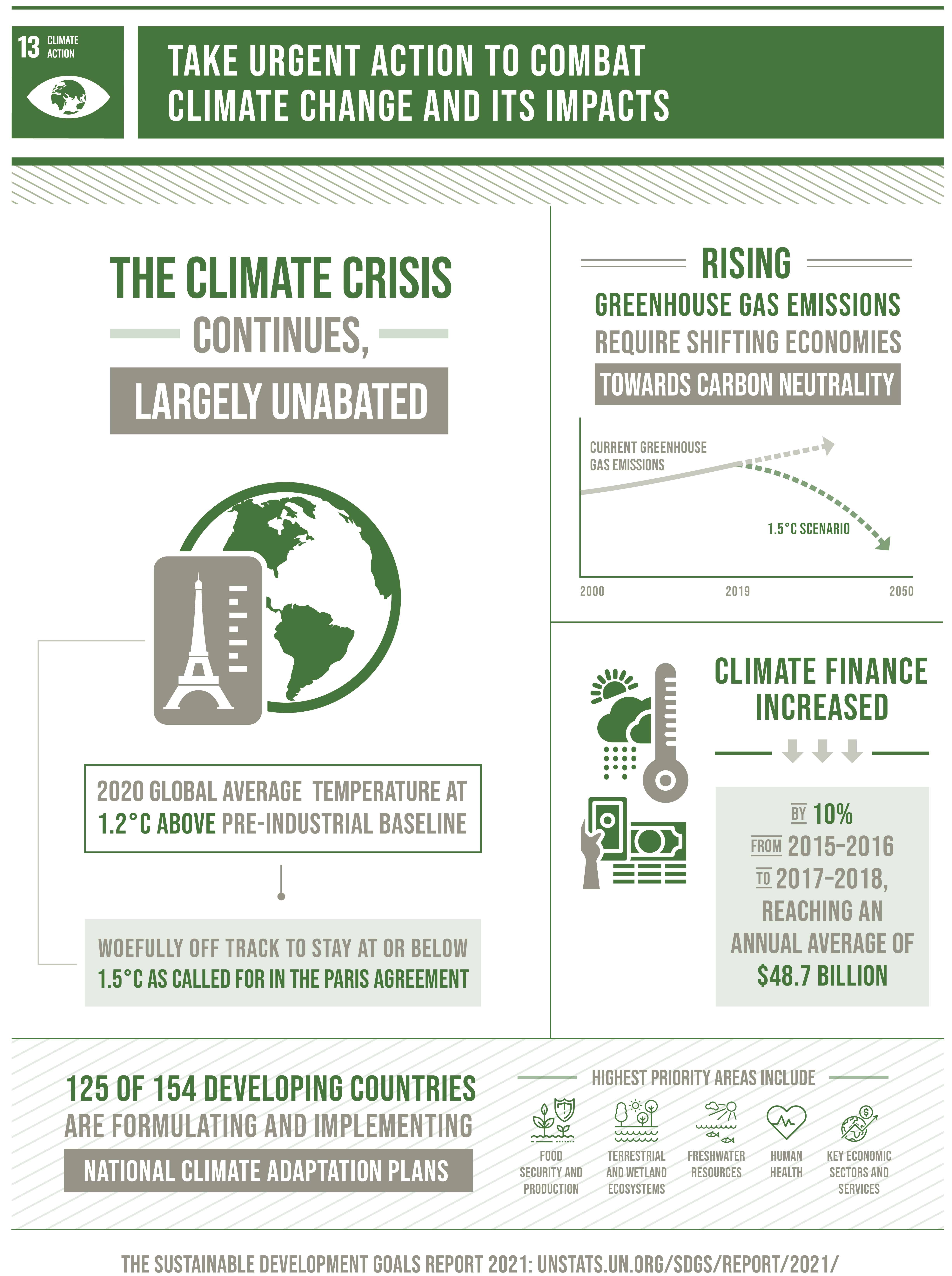
The latest IPCC report[6] provides new estimates of the chances of exceeding the global warming target in the next decades, and finds that unless there are immediate, rapid and large-scale reductions in greenhouse gas emissions, limiting warming to close to 1.5°C or even 2°C will be beyond our reach.
The report shows that emissions of greenhouse gases from human activities are responsible for approximately 1.1°C of warming since 1850-1900, and finds that averaged over the next 20 years, global temperature is expected to reach or exceed 1.5°C of warming.
This assessment is based on improved observational datasets to assess historical warming, as well progress in scientific understanding of the response of the climate system to human-caused greenhouse gas emissions.
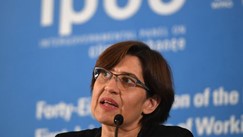
IPCC Working Group I Co-Chair
“This report is a reality check,” said IPCC Working Group I Co-Chair Valérie Masson-Delmotte.
“We now have a much clearer picture of the past, present and future climate, which is essential for understanding where we are headed, what can be done, and how we can prepare.”
Committed to a long term vision
Preparing for the kinds of actions envisaged by the IPCC to combat climate change is not a short-term task, but one that depends on long term thinking, investment and commitment – three qualities the Jameel Family is quietly proud to have demonstrated consistently over the past 75 years.
Active across a diverse a range of important areas, from mobility, renewable energy, energy storage and water solutions, to financial services, health, education, livelihoods, poverty, arts and culture, the work of the Jameel Family – both commercial and philanthropic – is characterized by looking beyond the right now, engaging in considered, long-term thinking and committed investments in many areas that make a crucial contribution to climate change mitigation.
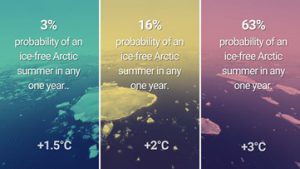 Take water, for example, surely our most precious resource, and one which is in the front line of climate change. According to the UN’s Progress Update on the SDGs[7], billions of people worldwide still live without safely managed drinking water, safely managed sanitation and basic hygiene services, especially in rural areas and less developed countries.
Take water, for example, surely our most precious resource, and one which is in the front line of climate change. According to the UN’s Progress Update on the SDGs[7], billions of people worldwide still live without safely managed drinking water, safely managed sanitation and basic hygiene services, especially in rural areas and less developed countries.
Climate change is making this already challenging situation even worse by its negative effects on the natural environment, such as forests, soils and wetlands, which are major factors in water availability and water quality.
Almar Water Solutions, a specialist provider of technical capabilities for water infrastructure development, is contributing to global efforts to address this situation, as outlined in our Perspectives article on water availability.
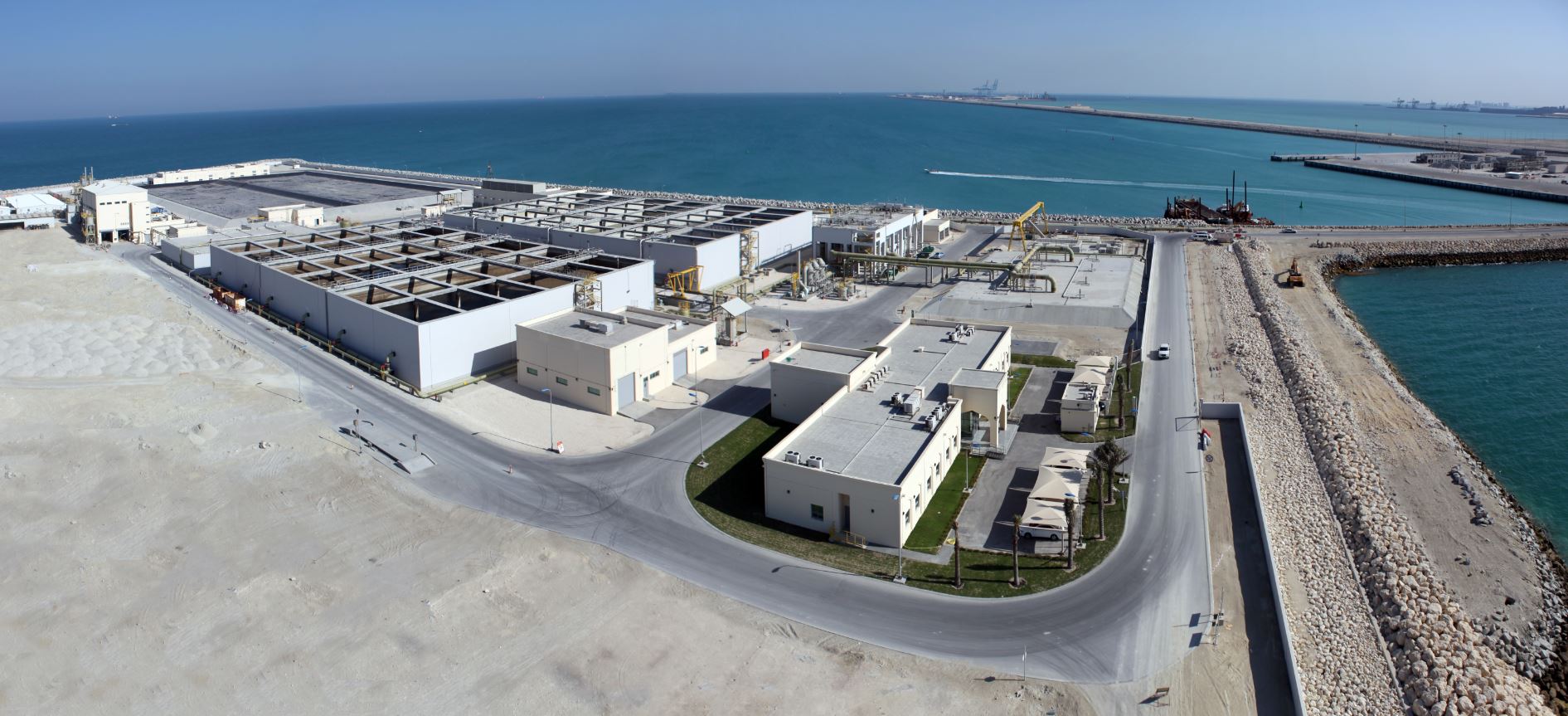
Part of Abdul Latif Jameel Energy and Environmental Services, Almar has a major stake in the Muharraq wastewater treatment plant in Bahrain, with a 29-year contract to operate the 100,000 cubic meters/day wastewater treatment plant, the first 16.5 km deep gravity sewer trunk pipeline in the GCC region and a wastewater collection network. In addition, it is part of consortium developing one of the world’s largest desalination plants, the now award-winning Shuqaiq 3 IWP on the Red Sea cost of Saudi Arabia. On schedule for completion by the end of 2021, this US$ 600m facility has the capacity to deliver 450,000 cubic meters of clean water to around 1.8 million people every day.
Almar is rapidly expanding its operations in Latin America, including the acquisition of Chilean water treatment companies Osmoflo SpA in 2019 and a 50% stake in Aguas y Riles SA in 2020, as it continues to build-out its regional platform to address issues such as water availability and sanitation in these countries. It also has a growing presence in Egypt, where through the acquisition of the Ridgwood Group, it now operates 58 desalination plants.
Almost as essential as water to today’s society is energy. It powers our cities, heats our homes, supports our water and food systems, and drives our factories. Unfortunately, traditional carbon-based energy sources, like coal, oil and gas, are also the main contributor to climate change, in the form of harmful CO2 emissions. That’s why substantially increasing the supply of sustainable, renewable energy is vital to achieving our net zero targets.
As discussed in more detail in a previous Abdul Latif Jameel Perspectives article, Abdul Latif Jameel Energy’s flagship renewable energy company Fotowatio Renewable Ventures (FRV), , is aiding the transition to sustainable energy and exploring new technologies to tackle climate change. With a presence on five continents, it has developed over 50 renewable energy plants and has a project portfolio of over 2.5 GW in global solar markets across Australia, the Middle East, India, Africa, USA and Latin America.
In addition, FRV has a dedicated innovation arm, FRV-X, which is pioneering utility-scale battery storage technology, enabling the supply of renewable energy on a truly 24/7 basis. FRV-X has already partnered with British developer Harmony Energy on two battery storage projects in the UK, at Holes Bay, Dorset, and Contego, West Sussex, and recently announced plans for the UK’s biggest Battery Energy Storage System (BESS) at Clay Tye in Essex.
This topic is explored in more depth in this Spotlight podcast, hosted by Fady Jameel.
FRV-X’s commitment to investing in a more sustainable future is also demonstrated by its involvement in the next generation of hydrogen-fueled public transport systems. The first of these is a partnership with the Professional Taxi Federation of Madrid to replace at least 1,000 traditional cabs with green hydrogen-powered vehicles by 2026. Abdul Latif Jameel’s long-time automotive partner, Toyota, is supplying the project with its record-breaking Toyota Mirai fuel cell model, capable of traveling up to 600km with zero environmental impact.
The second hydrogen transport project is in Alicante, the fourth most populated province in Spain, where FRV-X is joining forces with Vectalia to develop the first large-scale green hydrogen-powered bus transport system.
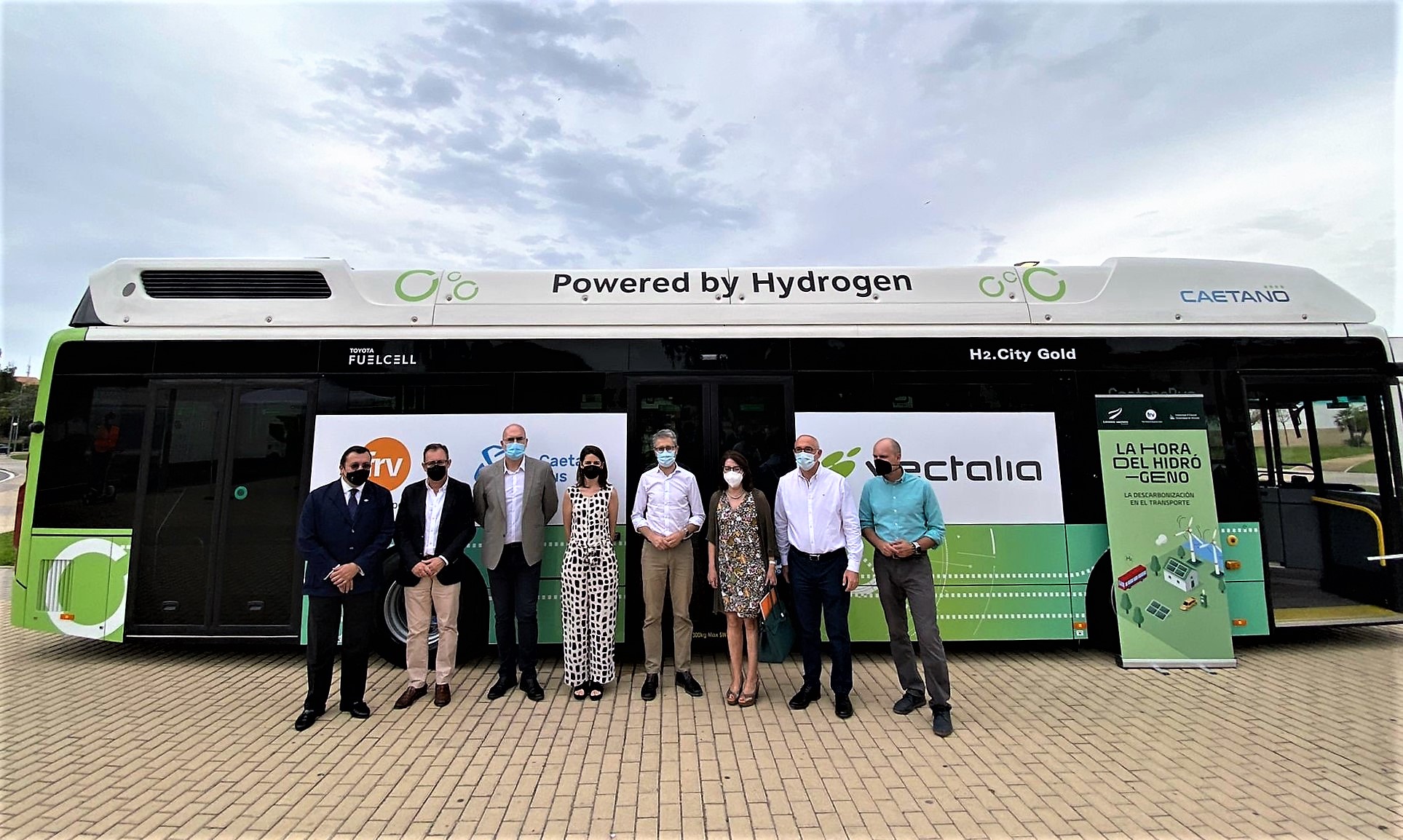
Investing in innovation
As well as investing in direct actions to drive more sustainable solutions for our society today, the Jameel Family also invests in ideas and innovations that could help to secure a more climate-friendly future.
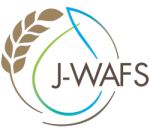 The Jameel Water and Food Systems Lab (J-WAFS) at Massachusetts Institute of Technology (MIT), for example, co-founded by Community Jameel and MIT, funds breakthrough research, innovation and technology to ensure safe, resilient food and water supplies with minimal environmental impact.
The Jameel Water and Food Systems Lab (J-WAFS) at Massachusetts Institute of Technology (MIT), for example, co-founded by Community Jameel and MIT, funds breakthrough research, innovation and technology to ensure safe, resilient food and water supplies with minimal environmental impact.
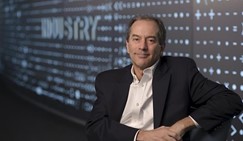
Abdul Latif Jameel Professor of Water & Mechanical Engineering
Director, Abdul Latif Jameel Water & Food Systems Lab (J-WAFS) at MIT
Professor John H, Lienhard, Director of J-WAFS, explains that “J-WAFS funds advanced research all over MIT directed at providing safe and stable supplies of water and food throughout the world while reducing environmental impact, to meet the local and global needs of a rapidly expanding and evolving population on a changing planet.”
Since its founding in 2014, J-WAFS has funded more than 60 projects, generating more than US$ 12 million in follow-on funds to extend and expand their research. Success stories include research into climate-resilient crops that can be bred to withstand the uncertainties of climate change, and a natural xylem filter made from tree branches to purify drinking water.
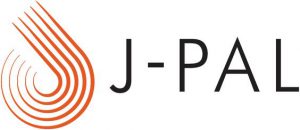 Another MIT collaboration is the Abdul Latif Jameel Poverty Action Lab (J-PAL), also at MIT, which works to reduce poverty by ensuring that policy is informed by scientific evidence. Originally founded in 2003, J-PAL began its long collaboration with Community Jameel in 2005.
Another MIT collaboration is the Abdul Latif Jameel Poverty Action Lab (J-PAL), also at MIT, which works to reduce poverty by ensuring that policy is informed by scientific evidence. Originally founded in 2003, J-PAL began its long collaboration with Community Jameel in 2005.
Anchored by a network of over 261 affiliated professors at universities around the world, J-PAL focuses on a number of critical sectors that are integral to the future of our society, including climate change.
How does climate change influence global poverty? Research shows that climate change disproportionately affects people living in poverty and threatens to reverse decades of progress in global poverty alleviation.
However, there is a critical lack of research on the real-world impacts of climate solutions. Leaders around the world need more evidence on the effectiveness of technological and policy innovations to implement solutions that address climate change and poverty. This is precisely the area where J-PAL excels, gathering data and evidence from across the globe to help identify the type of policies, projects and strategies that are most effective.
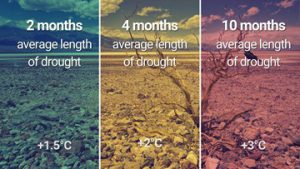 J-PAL’s Environment, Energy, and Climate Change sector measures the real-world impacts of energy and environmental policies, particularly on climate change mitigation, pollution reduction, climate change adaptation, and energy access.
J-PAL’s Environment, Energy, and Climate Change sector measures the real-world impacts of energy and environmental policies, particularly on climate change mitigation, pollution reduction, climate change adaptation, and energy access.
Its King Climate Action Initiative (K-CAI), for example, focuses on projects within four areas: climate-change mitigation; pollution reduction; adaptation to climate-change impacts; and improving energy access for low-income communities as well as shifting to cleaner sources.
The initiative aims to rigorously evaluate programs reducing the effects of climate change on vulnerable populations and then work with policy makers to scale up the most successful interventions.
“By testing interventions in the real world and building long-term partnerships with policy makers to scale effective solutions, K-CAI is helping ensure climate research creates meaningful change,” says J-PAL Global Executive Director Iqbal Dhaliwal.
Leveraging the power of private capital
Channeling private and public capital to invest in research, policies and technologies that could help to reduce or even reverse the worst impacts of climate change is a core aim of both J-WAFS and J-PAL. It is also central to the mission of the JIMCO Strategic Asset Fund , one of three investment funds operated by the Jameel Investment Management Company (JIMCO).
JIMCO brings together the Jameel Family’s non-operations investment activities into a dedicated investment brand, separate from both the Abdul Latif Jameel commercial business operations and the Jameel Philanthropies, which include Bab Rizq Jameel, Community Jameel, Art Jameel and Community Jameel Saudi.
Founded in 2018, the Fund pursues responsible investment opportunities in funds that can demonstrate clear and, crucially, sustainable and long-term visions. As Stephen Saint Leger, Managing Director JIMCO Strategic Asset Fund, explains, it is about using the power of private capital to make a positive difference on the world.
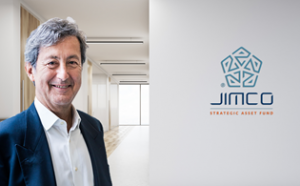
Managing Director, JIMCO Strategic Asset Fund
“The JIMCO Strategic Asset Fund invests in promising and forward-thinking fund managers whose strategy and mission is aligned to our own, and which have a degree of specialization in relevant sectors.
These range from sustainable approaches for food and water production, security and land use, to drivers of progress and democratization of global energy transformation towards renewable, sustainable and clean sources of power.”
Examples of this strategy in action include investments in funds that are building sustainable portfolios around resource efficiency, decarbonization, enabling technologies, renewables, distributed energy models, electrification and the electrochemical future of sustainable mobility, water infrastructure and regenerative agriculture.
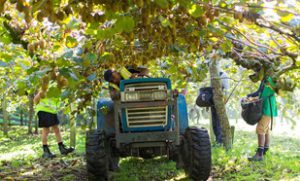 One is a fund that invests in sustainable farming in New Zealand.
One is a fund that invests in sustainable farming in New Zealand.
The fund advances its sustainable agriculture agenda through targeting innovative tech and business models and also acquiring and turning around underperforming farms, as well as transforming bare land to environmentally sound but productive use.
It is a regenerative approach to food production that aims to help mitigate or even reverse the damage caused by some modern agricultural practices to water, soil, climate and biodiversity systems.
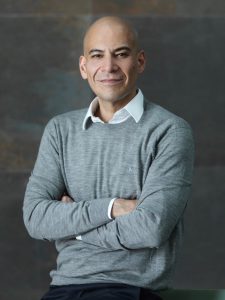
Deputy President & Vice Chairman,
Abdul Latif Jameel
A shared vision for a sustainable future
As these projects, investments and strategies make clear, with the world facing one of the biggest challenges it has ever known, the Jameel Family is proud to be contributing to the objectives of SDG 13, in line with the UN’s own vision for a more sustainable way of life for all.
“Through the choices and investments we make today, we can make a real contribution to global efforts to tackle climate change and achieve the objectives of the UN SDGs. With the right commitment and determination, we can work together to protect the environment and safeguard our societies in future,” says Fady Jameel, Deputy President and Vice Chairman of Abdul Latif Jameel.
Learn more about how the Jameel Family’s activities are contributing to the UN Sustainable Development Goals by visiting: https://jameel75.com/sdg to watch our video and download a summary report.
[1] https://www.ipcc.ch/assessment-report/ar6/
[2] https://unfccc.int/process-and-meetings/the-paris-agreement/the-paris-agreement
[3] https://sdgs.un.org/goals/goal13
[4] https://news.un.org/en/story/2020/04/1062332
[5] https://news.un.org/en/story/2020/03/1059061
[6] https://www.ipcc.ch/assessment-report/ar6/
[7] Summary Progress Update 2021: SDG 6 — water and sanitation for all, United Nations, 21 February 2021


 Added to press kit
Added to press kit


